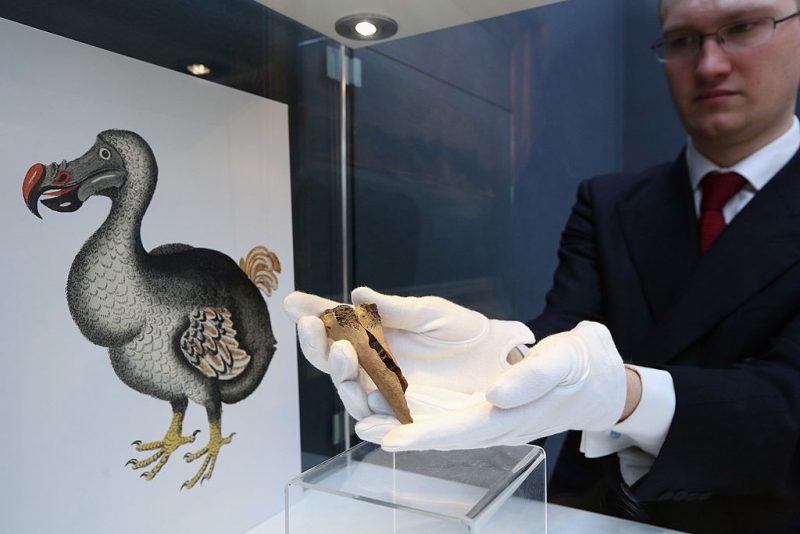
OAN’s Elizabeth Volberding
11:20 AM – Wednesday, December 27, 2023
Scientists worldwide are currently attempting to bring back ancient ice-encapsulated cells in order to discover new ways of potentially reviving the long-extinct species, the dodo bird.
The dodo bird is a species that fell to extinction in the 17th century, and it has mostly been discussed in children’s books since then. However, thanks to the efforts of a handful of scientists throughout the world, these unique birds could return back to earth.
A biotech company based in Dallas, Texas, Colossal Biosciences, recently declared that it was going to “de-extinct” the dodo bird.
In addition to this plan, the biotechnology and genetic engineering company is currently working on projects to bring back the Thylacine (Tasmanian tiger) and the Mammuthus primigenius (Wooly mammoth).
Colossal has launched a partnership with the Mauritian Wildlife Foundation and both groups are currently working to find a safe and proficient location for the dodo birds to reside. The aim of the project is to re-introduce the bird to its native habitat in Mauritius.
According to the company’s previous projects, massive advancements in genetic engineering, artificial wombs, animal husbandry, and stem cell biology are required to bring back the dodo bird.
However, it is impossible to accurately predict if these birds would be able to survive after more than three centuries in wildlife.
The dodo bird has been extinct since 1681 due to a mix of human-introduced animals and predation, making its extinction case study quite unique. However, the partners believe that the dodo’s immediate surroundings and other species may benefit from its return to Mauritian Wildlife.
In January 2023, Colossal initially declared its decision to revive the dodo. However, the biotechnology company has not disclosed exactly just when it will be able to do so.
Ben Lamm, the CEO and co-founder of Colossal, made a statement about the “de-extinction of the dodo bird.”
“Restoring the dodo gives us the opportunity to create ‘conservation optimism,’ that hopefully inspires people around the globe, specifically the youth, in a time when climate change, biodiversity loss, and politics can make things seem hopeless,” Lamm stated.
The complete genome of the dodo bird has been organized by Beth Shapiro, who is the lead paleo geneticist at Colossal. Shapiro is known for having an extreme fascination and specialized interest in the extinct bird.
In addition, Colossal will be attempting to make use of specific technology to de-extinct the dodo, and in the case that it is successful, the same technology can be utilized to bring back other populations of avian creatures that are at the verge of extinction.
Resurrection biology science has made substantial progress throughout the past year as scientists in the field look to the past for resolutions in the future.
Stay informed! Receive breaking news blasts directly to your inbox for free. Subscribe here. https://www.oann.com/alerts

